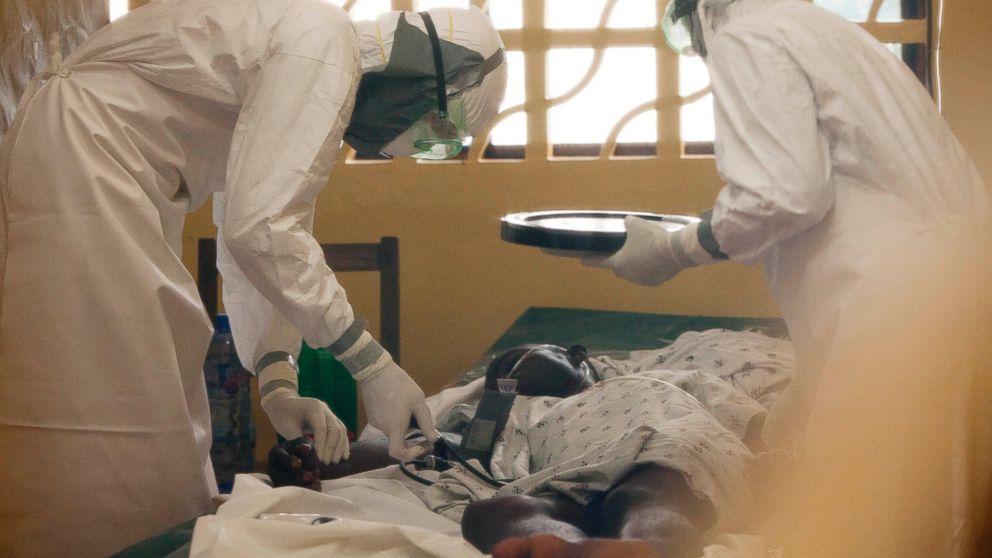Official: Ebola kills senior doctor in Liberia

Dr. Samuel Brisbane is the first Liberian doctor to die in an outbreak the World Health Organization says has killed 129 people in the West African nation. A Ugandan doctor working in the country died earlier this month.
The WHO says the outbreak, the largest ever recorded, has also killed 319 people in Guinea and 224 in Sierra Leone.
Brisbane, who once served as a medical adviser to former Liberian President Charles Taylor, was working as a consultant with the internal medicine unit at the country's largest hospital, the John F. Kennedy Memorial Medical Center in Monrovia.
After falling ill with Ebola, he was taken to a treatment center on the outskirts of the capital, where he died, said Tolbert Nyenswah, an assistant health minister.
Under the supervision of health workers, family members escorted the doctor's body to a burial location west of the city, Nyenswah said.
He added that another doctor who had been working in Liberia's central Bong County was also being treated for Ebola at the same center where Brisbane died.
The situation "is getting more and more scary," Nyenswah said.
News of Brisbane's death first began circulating on Saturday, a national holiday marking Liberia's independence in 1847.
President Ellen Johnson Sirleaf used her Independence Day address to discuss a new taskforce to combat Ebola. Information Minister Lewis Brown said the taskforce would go "from community to community, from village to village, from town to town" in order to increase awareness.
Health workers are at serious risk of contracting the disease, which spreads through contact with bodily fluids.
Sierra Leone's top Ebola doctor fell ill with the disease last week, and the aid group Samaritan's Purse said Saturday that an American doctor in Liberia was also sick.
There is no known cure for Ebola, which begins with symptoms including fever and sore throat but then escalates to vomiting, diarrhea and internal and external bleeding.
Experts believe the ongoing West Africa outbreak could have begun as far back as January in southeast Guinea, though the first cases weren't confirmed until March.
Since then, officials have tried to contain the disease by isolating victims and educating populations on how to avoid transmission, though porous borders, satellite outbreaks and widespread distrust of health workers have made the outbreak difficult to bring under control.
Nigerian officials announced on Friday that a Liberian official died of Ebola after flying from Monrovia to Lagos. The official's plane also stopped in Lome, Togo.
An outbreak in Lagos, a megacity where many lived in cramped conditions, could be a major public health disaster.
The fact that the traveler from Liberia could board an international flight also raised new fears that other passengers could take the disease beyond Africa.
Comments
Post a Comment